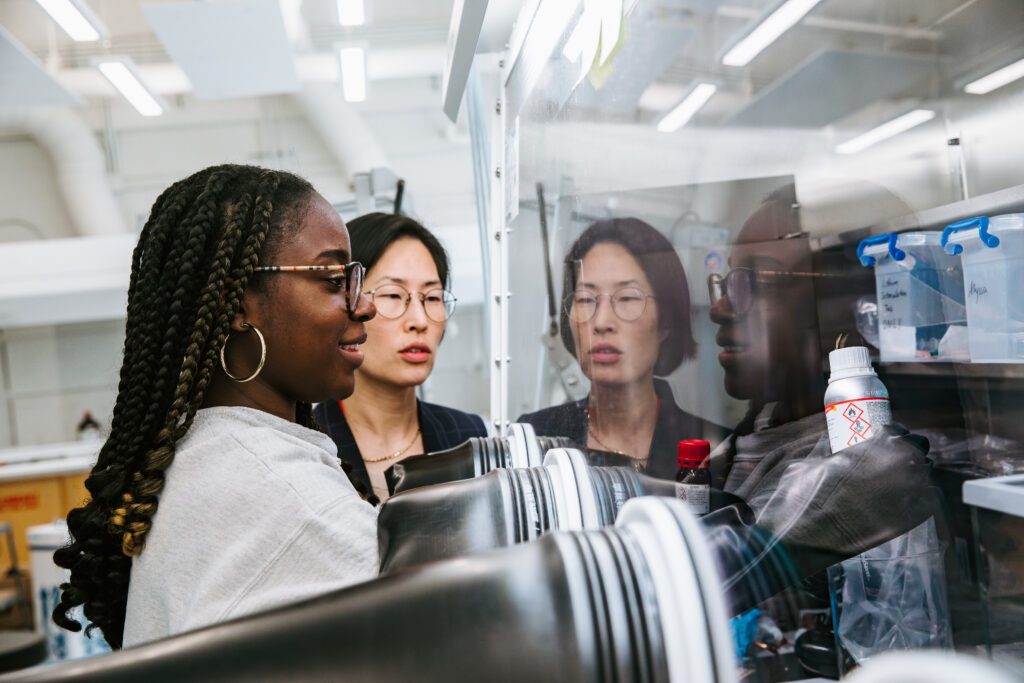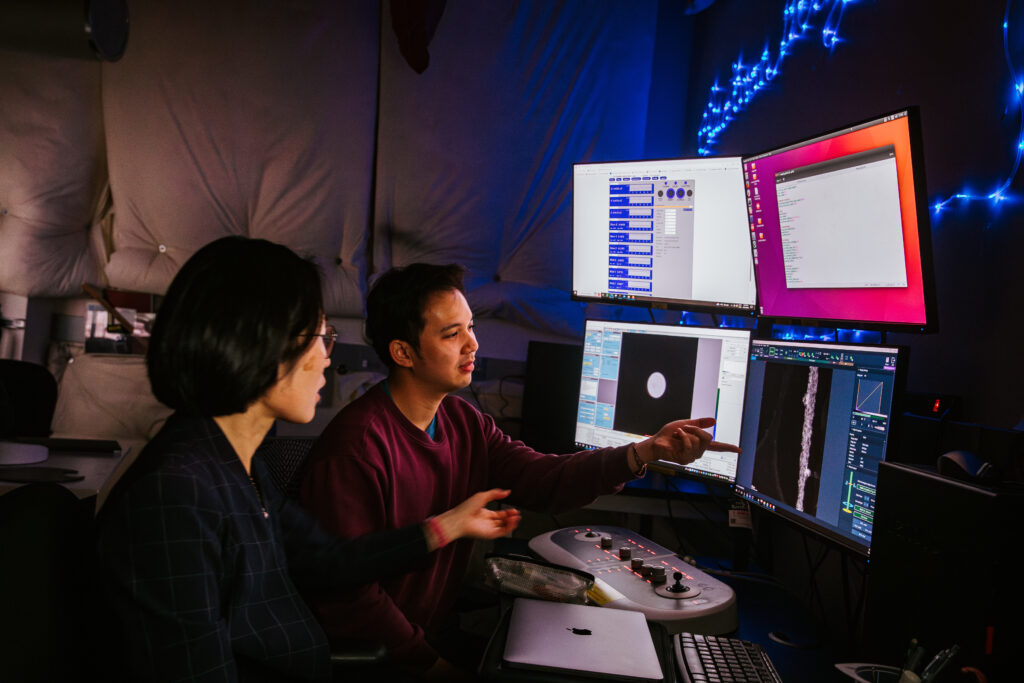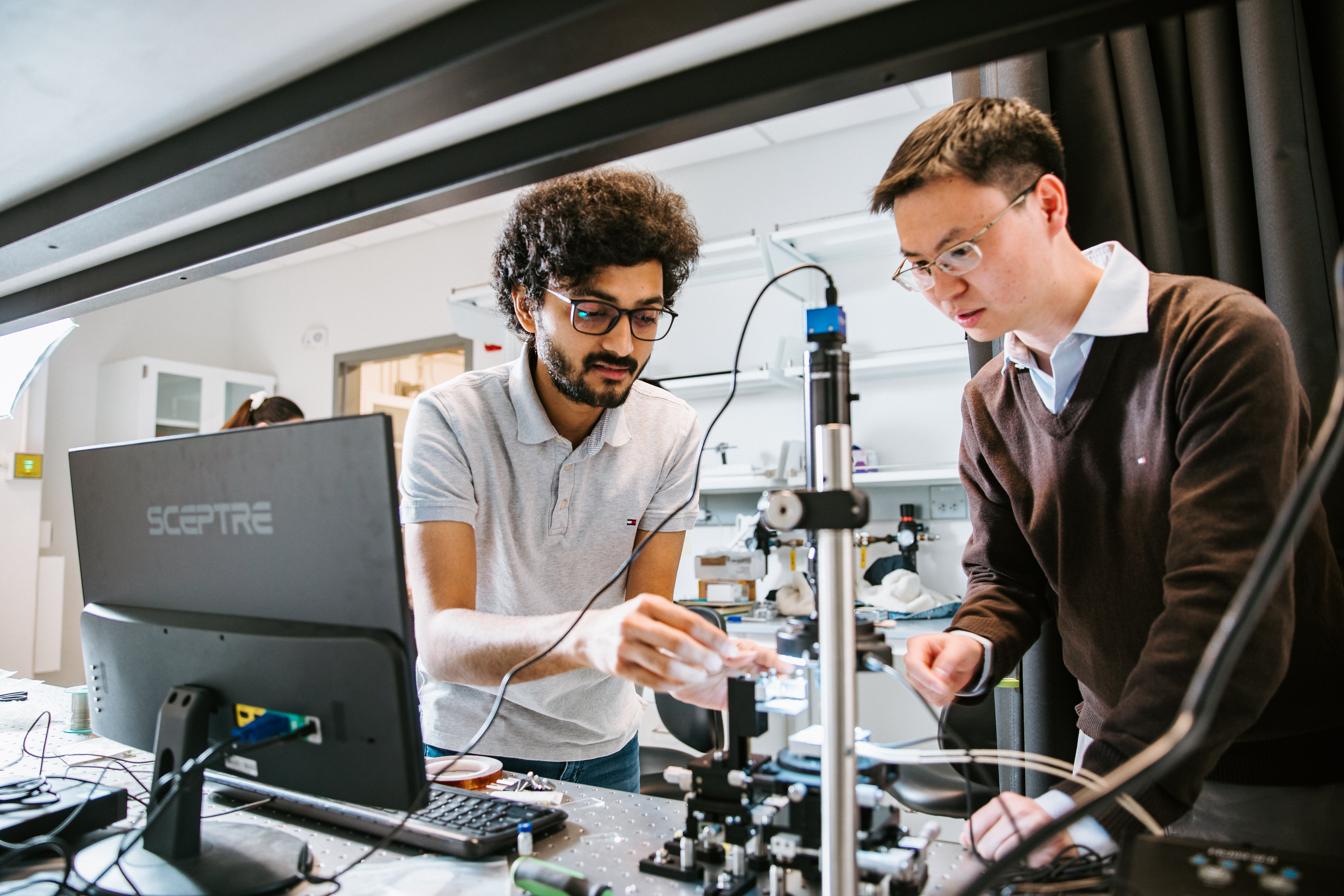Materials scientists and engineers are the unsung heroes behind many of today’s advancements and tomorrow’s innovations. We have wearables that monitor our health, vehicles that are lighter yet more resilient, and energy solutions that are cleaner and more efficient than ever. These dreams — and so much more — are becoming reality thanks to the work of materials scientists and engineers who blend physics, chemistry, and biology to develop technologies that take us into the future.
For those who want to be at the forefront of such breakthroughs, Cornell University’s Department of Materials Science and Engineering (MSE) offers an ideal pathway. Since the 1960s, MSE has been at the cutting edge of materials science. It was the first to grow a single layer of graphene and determine its structure, achieve laboratory pressures surpassing those at the centre of the Earth, and lay the groundwork for a new industry through its research on polymer-clay nanocomposites.
This pioneering spirit permeates its Master of Engineering (MEng), one of the few offered in the US. A professionally oriented degree programme designed to give students a competitive advantage in the workplace, it has transformed many graduates into leaders in business, non-profit, and government.
Mumtaziah Faaz, a Class of 2022 graduate from Jakarta, Indonesia, is now a Packaging R&D Engineer at Intel Corporation. She credits the department for making her the thriving professional she is today. When asked about her current career, she says, “I love the synergy of how we all work together hand-in-hand solving issues to achieve prominent cutting-edge technology for customers worldwide.”

The Cornell MSE Master of Engineering is a professionally oriented programme that provides students with a competitive edge in the workforce. Source: Cornell University
An education designed for professional excellence
Cornell’s MEng programme stands out for its curriculum, which provides both a broad foundation in materials science and the flexibility to specialise. Students benefit from a well-rounded education while having the opportunity to focus on niche technologies that align with their career goals. Working closely with faculty advisors, students tailor their coursework, which usually includes six to eight graduate-level classes and the option to explore electives from other Cornell departments.
Another key focus of the programme is how to apply all this new knowledge beyond the laboratory. This ensures students are not just experts in their field but also adept professionals ready to make a difference in their chosen roles. A weekly professional development course makes this possible.
Rather than being a theoretical exercise, this course is all about practical applications. Collaborating with the Cornell Team and Leadership Centre, students engage in interactive workshops designed to boost their communication, teamwork, and project management skills. These workshops use real-world case studies and personal career experiences to reinforce essential principles, making the learned skills relevant and actionable. Follow-up classes get students to apply these skills in practical settings, refine interview techniques, set SMART goals, and work on team projects.
All of this new knowledge and new skills, technical and professional, come to a head during the capstone project. This is when students get hands-on experience solving a real-world problem of significance. Teaming up with faculty and industry partners or entrepreneurs, this project serves as a culmination of the skills and knowledge gained throughout the programme. It includes joining lectures, taking part in a tech startup integrated into the Johnson School MBA mentoring programme, startup design reviews, individual/group presentations, and writing a startup issue paper.
Access to world-class facilities
Cornell’s facilities provide an unparalleled learning environment. The Cornell High Energy Synchrotron Source (CHESS) offers advanced material characterisation at the atomic level, while the Cornell NanoScale Science and Technology Facility (CNF) immerses students in nanofabrication technologies crucial for the future of semiconductors and related fields. These facilities ensure that students have access to the latest tools and technologies, supporting their pursuit of specialised interests.

The Department of Materials Science and Engineering has been at the forefront of materials science advancements since the 1960s. Source: Cornell University
An upcoming building expansion promises to further enhance the programme with a dedicated space for individual and team projects. “The initial intended use is a space for students to work on their individual projects, with a suite of characterisation and fabrication tools,” says Kintu Early, Director of the MSE Master of Engineering Programme.
“As we evolve, we may focus more on team projects in this space. This way, we can reproduce the environment and feel of an industry project team, further building the team dynamics and leadership skills critical for success in the industry.”
Bridging the gap between education and industry
The MEng programme’s focus on career readiness is evident through its extensive network of industry connections. Companies ranging from established giants to emerging startups are involved in the programme, sponsoring projects, engaging in career panels, and recruiting graduates.
“One recent project involved Andela Products, a local glass recycling facility, sponsoring one of our students to develop a slow-release fertiliser from waste glass,” Early says. “This initiative showcased how a small project can lead to significant real-world impact and provided the student with insight into how quickly corporate R&D can advance. They went from an interesting idea to a potential new product with significant sustainability impact in under a year.”
Apply to the Materials Science and Engineering MEng programme today.
Follow Cornell Engineering on Facebook, X, Linkedin, and YouTube










